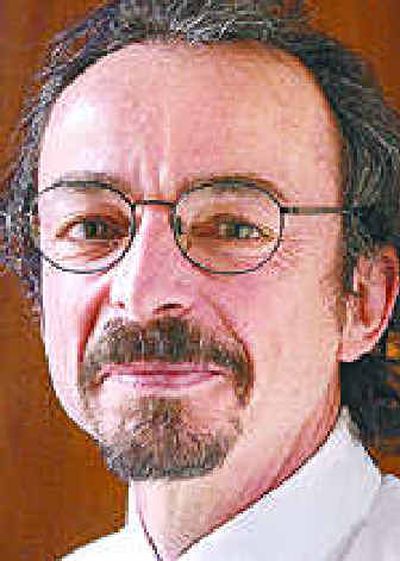Private talks no way to plan an energy policy

The Bush administration continues to formulate and promote energy policy in private.
On March 10, the Federal Energy Regulatory Commission met behind closed doors with several dozen executives from regional transmission organizations, or RTOs. These new entities have been controversial, especially in the Northwest, which because of its unique circumstances has not yet been able to agree on how best to create one.
FERC’s goal, relentlessly promoted by Chairman Patrick Wood III, is the consolidation of regional transmission grids under a single operator. Once consolidated, the grids would be open to all, traditional utilities as well as independent generators who might otherwise have no access to the grid.
Wood considers RTOs an important step towards complete deregulation of the nation’s electricity markets, with huge potential savings for consumers. But RTOs already working in the Midwest and Northeast are adding millions to costs. That does not discourage Wood. Markets are good even when, as happened in 2000 and 2001, outfits like Enron exploit lax oversight to squeeze billions from West Coast consumers. When the commission at last intervened, electricity prices collapsed.
Lingering suspicions of FERC have slowed implementation of an RTO in the Northwest.
The Bonneville Power Administration, which is exempt from FERC oversight, owns about 75 percent of all the Northwest’s major transmission lines. Private utilities like Avista Corp. that must answer to FERC own much of the rest.
Three years of trying to find a way of pulling all that wire into one junction box have so far resulted only in the creation of something called Grid West, which Bonneville has had difficulty embracing because of the jurisdiction issues. Last week, the agency and most of the region’s utilities agreed to create a Transmission Issues Group that will explore ways to achieve some of the goals set out for RTOs, but outside FERC jurisdiction. Results of their study are due Aug. 1. The public utility districts and cooperatives that get most of their power from Bonneville are especially leery of FERC control.
The March 10 meeting only encourages distrust.
The circumstances resemble too closely the kind of insider chats Vice President Dick Cheney had with energy industry executives when the administration was drafting its energy bill. Disgraced Enron Chairman Kenneth Lay was among those bending the vice president’s ear. Unfortunately, the courts have turned back efforts by public interest groups and Congress to find out who else met with Cheney.
The secrecy of the March 10 meeting has piqued Sen. Larry Craig, R-Idaho, and Sen. Maria Cantwell, D-Wash., both of whom sit on the Senate Energy and Natural Resources Committee. An aide to Craig was quoted in a press report saying the senator would look into the reasons for the meeting. Cantwell sent a letter to Wood last week asking for information about the gathering. The letter also suggested the commission violated open-meeting laws and its own regulations.
Cantwell also submitted a request under the Freedom of Information Act for all documents related to the meeting, including a list of those who attended.
Meanwhile, Northwest utility officials have gotten conflicting signals from commission members regarding commission flexibility on jurisdiction issues.
Steve Johnson, executive director of the Washington Public Utility District Association, says that in a meeting several weeks ago Wood seemed to encourage efforts to open up the region’s transmission regardless of whether the entity was subject to commission oversight.
But, in a March 17 meeting with Northwest utility representatives, Commissioner Suedeen Kelly was less reassuring. Kelly, from New Mexico, is the only commissioner from west of Texas. Northwest utility officials hoped she would be more sensitive to the region’s concerns when she joined the group in December 2003.
The Northwest still needs representation on FERC, which has one vacant seat now, and may well have another when Wood’s term expires July 1. Not only would a regional presence on the commission provide an ongoing advocate, it would — hopefully — put in place at least one individual who might welcome participation by someone besides industry insiders.